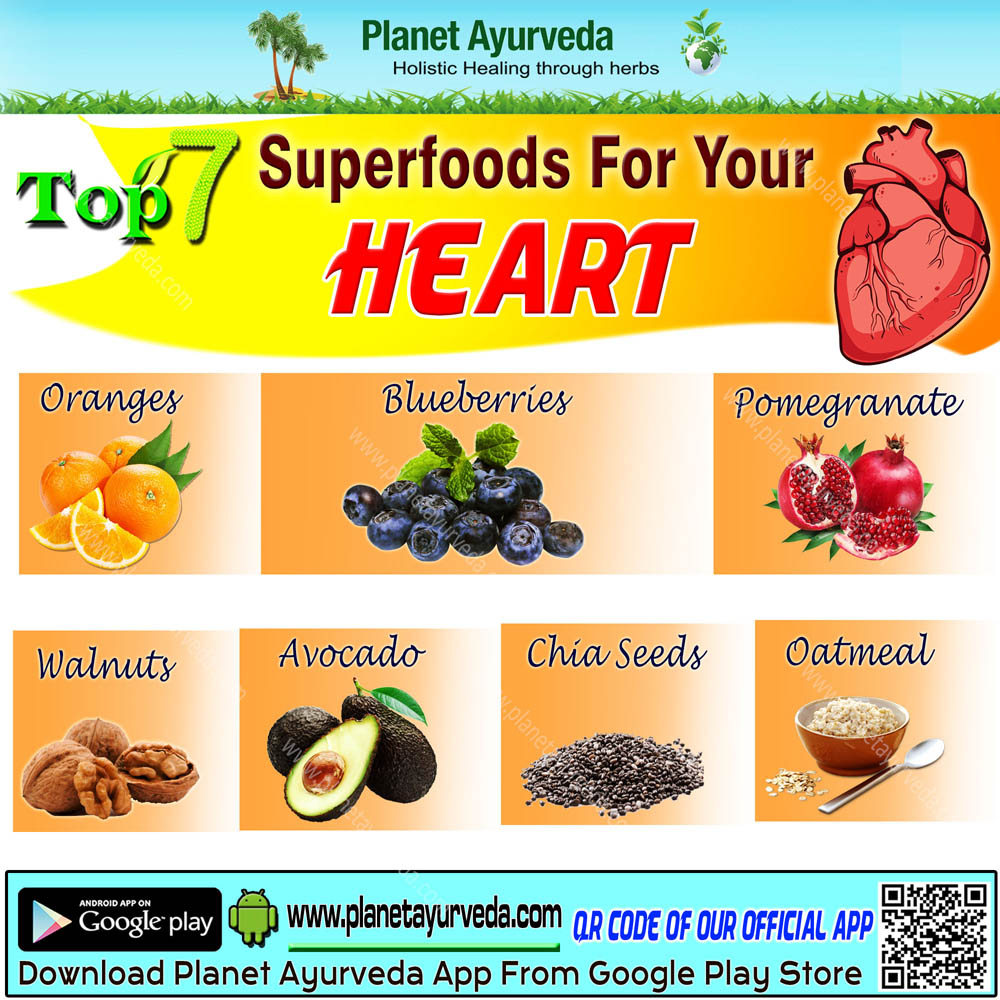In today’s fast-paced world, maintaining heart health is more crucial than ever. Superfoods that can improve your heart health are not just a trend; they are a vital part of a balanced diet that can help reduce the risk of heart disease and promote overall well-being. These nutrient-dense foods are packed with antioxidants, healthy fats, and essential vitamins that work synergistically to support cardiovascular function. By incorporating these superfoods into your daily meals, you can take proactive steps towards a healthier heart.
In this article, we will explore a variety of superfoods that are particularly beneficial for heart health. From vibrant berries rich in antioxidants to omega-3 fatty acid sources like fatty fish, each superfood offers unique properties that contribute to cardiovascular wellness. You will learn how these foods can help lower cholesterol levels, reduce inflammation, and improve blood circulation. Additionally, we will provide practical tips on how to easily integrate these superfoods into your diet, making heart-healthy eating both enjoyable and sustainable.
Whether you are looking to enhance your current diet or are simply curious about the best foods for heart health, this guide will equip you with the knowledge you need. Join us as we delve into the world of superfoods and discover how simple dietary changes can lead to significant improvements in your heart health. Read on to unlock the secrets of these powerful foods and take the first step towards a healthier lifestyle!
Omega-3 Fatty Acids: The Heart’s Best Friend
Omega-3 fatty acids are essential fats that play a crucial role in maintaining heart health. Found in fatty fish such as salmon, mackerel, and sardines, these healthy fats have been shown to reduce inflammation, lower blood pressure, and decrease triglyceride levels. Regular consumption of omega-3s can lead to a lower risk of heart disease and stroke, making them a vital component of a heart-healthy diet.
In addition to fish, omega-3 fatty acids can also be obtained from plant sources such as flaxseeds, chia seeds, and walnuts. These plant-based options are particularly beneficial for those following a vegetarian or vegan diet. Incorporating a variety of omega-3-rich foods into your meals can help ensure you receive the heart-protective benefits these nutrients offer. Studies have indicated that individuals who consume higher amounts of omega-3s tend to have better heart health outcomes, including improved cholesterol levels and reduced arterial plaque buildup.
Antioxidant-Rich Berries: Nature’s Heart Protectors
Berries, such as blueberries, strawberries, and raspberries, are packed with antioxidants that can significantly benefit heart health. These vibrant fruits are rich in flavonoids, which have been linked to improved cardiovascular function. Antioxidants help combat oxidative stress and inflammation in the body, both of which are risk factors for heart disease. Including a variety of berries in your diet can enhance your overall nutrient intake while providing delicious flavors.
Research has shown that regular consumption of berries can lead to lower blood pressure and improved cholesterol levels. For instance, a study found that participants who consumed strawberries regularly experienced a reduction in LDL cholesterol, often referred to as “bad” cholesterol. Incorporating berries into your breakfast, snacks, or desserts is an easy and tasty way to boost your heart health. Consider adding them to smoothies, yogurt, or salads for a nutritious and flavorful addition to your meals.
Leafy Greens: Nutrient Powerhouses for Heart Health
Leafy greens, such as spinach, kale, and Swiss chard, are nutrient-dense foods that can greatly benefit heart health. These vegetables are rich in vitamins, minerals, and antioxidants, particularly vitamin K, which plays a role in reducing arterial stiffness. The high fiber content in leafy greens also aids in lowering cholesterol levels and maintaining a healthy weight, both of which are essential for cardiovascular health.
Incorporating leafy greens into your diet can be simple and versatile. They can be used in salads, smoothies, or as a side dish. A diet rich in leafy greens has been associated with a lower risk of heart disease, making them an essential component of a heart-healthy eating plan. Aim to fill half your plate with vegetables, including a variety of leafy greens, to maximize the heart-protective benefits they offer.
| Superfood | Key Benefits |
|---|---|
| Omega-3 Fatty Acids | Reduce inflammation, lower blood pressure, decrease triglycerides |
| Berries | Rich in antioxidants, lower blood pressure, improve cholesterol levels |
| Leafy Greens | High in vitamins and minerals, reduce arterial stiffness, lower cholesterol |
| Superfood | Benefits | How to Include in Diet |
|---|---|---|
| Blueberries | Rich in antioxidants, they help reduce blood pressure and improve cholesterol levels. | Add to smoothies, oatmeal, or enjoy as a snack. |
| Salmon | High in omega-3 fatty acids, which lower the risk of heart disease and improve heart function. | Grill, bake, or add to salads. |
| Spinach | Contains vitamins and minerals that help lower blood pressure and improve arterial function. | Use in salads, smoothies, or sauté as a side dish. |
| Avocado | Rich in healthy fats and potassium, which can help lower cholesterol levels. | Add to salads, sandwiches, or make guacamole. |
| Walnuts | High in omega-3s and antioxidants, they can help reduce inflammation and improve heart health. | Snack on them, add to salads, or mix into baked goods. |
| Quinoa | A complete protein and high in fiber, it helps maintain healthy cholesterol levels. | Use as a base for salads or as a side dish. |
| Dark Chocolate | Contains flavonoids that can improve circulation and lower blood pressure. | Enjoy in moderation as a treat or add to smoothies. |
| Garlic | Known to lower blood pressure and cholesterol levels, promoting overall heart health. | Add to cooking, dressings, or take as a supplement. |

